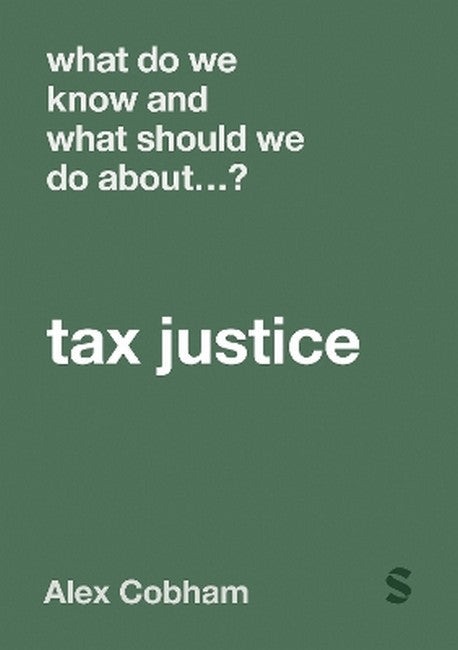Alex Cobham is an economist and chief executive of the Tax Justice Network. He is also a founding member of the steering group of the Independent Commission for the Reform of International Corporate Taxation, and of the technical advisory group for the Fair Tax Mark. His work focuses on illicit financial flows, effective taxation for development, and inequality. He has been a researcher at Oxford University, Christian Aid, Save the Children, and the Center for Global Development, and has consulted widely, including for UNCTAD, the UN Economic Commission for Africa, DFID, and the World Bank. He recently published two books: The Uncounted (Polity Press), and Estimating Illicit Financial Flows: A Critical Guide to the Data, Methodologies, and Findings, with Petr Jansky (Oxford University Press).
Request Academic Copy
Please copy the ISBN for submitting review copy form
Description
Introduction Background What do we know about tax (in)justice? What should we do to achieve tax justice? Conclusion
Overall this book covers a good deal of ground, summarising the authors work, in both the academic field as well as in practice and in understanding the relationship between firms and governments. It also for example highlights the unequal nature of the bargaining arrangements between firms and tax authorities, and the need, for reasons discussed above to end secrecy, not only at the level of the firm, but from banks, and also (typically big 4) auditors and the advice they give on tax avoidance. Overall therefore, Cobham provides an excellent, thought provoking overview of these issues, with many examples that even the casual reader would find interesting. -- Professor Nigel Driffield Cobham's analysis unveils compelling dimensions of tax justice, supported by insightful data seamlessly presented in charts and tables. The book transcends its initial goal of offering "a guided tour of the issues and evidence", evolving into a profound exploration of the interconnected realms of taxation, justice, and development. Through this exploration, readers gain a profound understanding of the evolving landscape of contemporary taxation systems and their contradictory impacts at both domestic and international contexts. What emerges unequivocally is the book's plea for urgent reform as a prerequisite for achieving social justice. The narrative deftly underscores the pressing need to address the inequities perpetuated by the abuse of tax systems, both within nations and amongst them, emphasizing the imperative role of fair tax policies in meeting the basic needs of citizens across the spectrum of economic disparities. In adhering to the standards of the "What Do We Know and What Should We Do About...?" series, the book achieves its objective of providing a concise, up-to-date overview of a critical issue. But the book not only informs, it also calls for action in the face of the contemporary challenges posed by the evolving landscape of taxation and its implications for global social justice. -- Dr Iyabo Masha Alex Cobham's latest book is a beacon of clarity and hope in a critical period for global tax reform. International tax policy deeply impacts every global citizen, yet discussions on the matter remain far removed from the public eye, dominated by a select group of 'experts'. This excellent work not only introduces us to the movement for tax justice, seeking a fairer system of international taxation, but also outlines its key battles, victories, and ongoing challenges in an exceptionally accessible manner. What makes this book stand out is its ability to bring the discourse on tax justice closer to the general public. With its straightforward, well-crafted prose free of jargon, Cobham demonstrates how taxation transcends expert domains to become, fundamentally, a political issue. Furthermore, the book's utilization of mnemonic techniques, akin to Cobham's pioneering use of the 4Rs, which has since become widely adopted, proves invaluable also for experts looking to distill ideas and clarify concepts. This book is a must-read for anyone looking to understand international tax justice issues. -- Maria Fernanda Valdes

